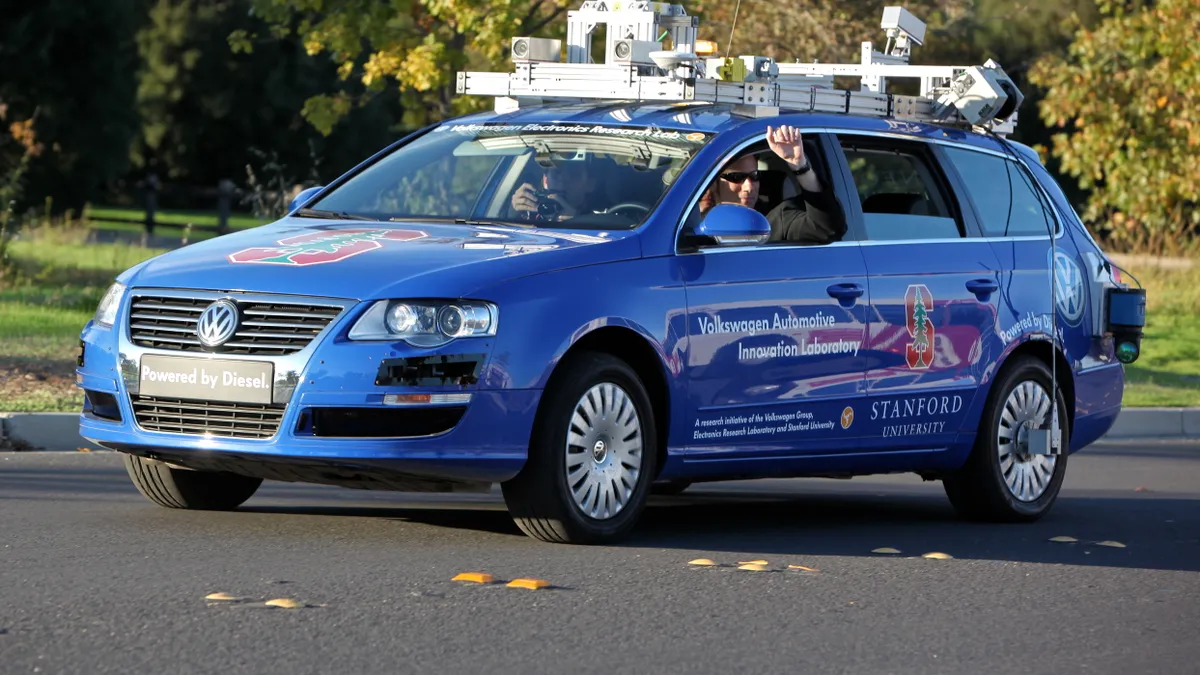Dive Brief:
- Researchers from the University of Oregon released a study detailing how the rise of autonomous vehicles (AVs) could change how cities operate and how a city's budget could be impacted by the rising prevalence of AVs.
- Among those impacts is a loss of parking and other traffic-related revenue. According to the white paper, parking charges, on average, account for between 1% and 2% of a city's local revenue source. Cities could see even less revenue come in from parking and other charges — AVs don't have to park as often and are less likely to be ticketed for speeding, running a red light or parking illegally than human drivers.
- While the lack of a need for parking could cause some revenue to drop, it could also open up land for redevelopment. Parking accounts for between 14% and 25% of land used in urban areas, making it the single largest land-use category in cities. With AVs needing up to 90% less parking space than regular cars, parking structures and parking spots could be replaced with high-value, diverse and dense development, raising property tax revenue. On the other hand, as parking infrastructure comes down and land opens up, land values could temporarily drop, according to the paper.
Dive Insight:
With car ownership expected to go down once AVs are fully on the road, cities will transform almost as much as the way people get around is changed. The effects could be wide-ranging and are, in some cases, hard to predict.
"There is not a single outcome we can expect," Ben Clark, a co-author of the study and assistant professor at the University of Oregon, told Smart Cities Dive in an interview.
The changes may be drastic, but governments and companies are preparing for the challenges and testing the technology. AV legislation is already moving through the U.S. Congress, IBM is working to combat security concerns, and researchers are working on programming human-like ethics into AV systems. Eighteen states, plus the District of Columbia have enacted AV legislation and governors from four other states have signed AV executive orders. More than 30 companies in California have permits to test AVs on the road.
Clark noted a place like Detroit, which already has excess land from years of shrinking populations, would likely evolve differently than a city like New York, where space is at a premium.
It's not entirely clear, though, how and where people will choose to live once AVs are affordable and ubiquitous. People may flock to downtown living, because the space could become more affordable, as parking lots give way to apartment buildings. Alternatively, people could sprawl out into suburbs and the country side as commutes get easier and driving becomes time for extra work, entertainment or sleeping.
"The American Dream might be changing a bit," Clark said.











